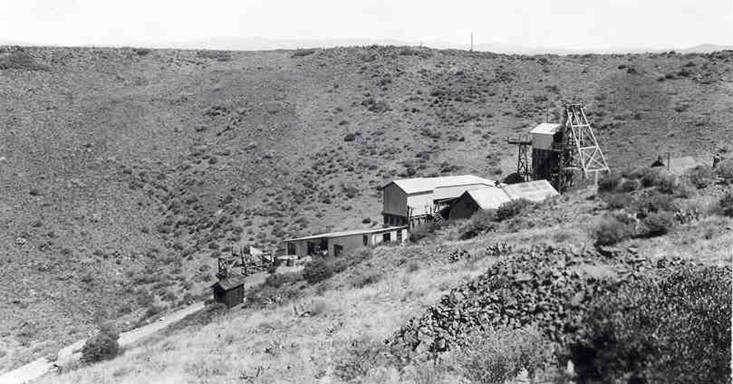Walnut Grove - 1890
According the State of Arizona 2009 Multi-Hazard Mitigation Plan,
"February 22, 1890, the most significant dam failure experienced in the State occurred in Walnut Grove. The dam failed due to overtopping and the ensuing flood caused an estimated 150 deaths and extensive destruction of property. The failure was blamed on inadequate capacity of the spillway and poor construction. Located 30 miles by river north of Wickenburg on the Hassayampa River, the dam was built to provide water for irrigation and gold placer mining. The rock fill structure was 110 feet high, 400 feet long, had a base width of 140 feet, a top width of 10 feet, and a spillway of 5-20 feet long. The lake was 2.5 miles long by one mile wide covering over 1,000 acres, an average depth of 60 feet. Based upon various accounts of the Walnut Grove Dam failure, the weather at the time was rain and melting snow. The day before the breach, water in the lake rose rapidly at the rate of about one and one-half foot per hour. The spillway was enlarged to allow excess water to escape but the effort was insufficient to stop water from running over the top. A sheet of water three feet thick reportedly poured over the dam top for six hours. Between 1:00 - 2:00 A.M. on February 22, 1890 the dam broke and the lake drained in one to two hours. The water rushed down Box Canyon, a narrow, steep canyon in a body 80 feet high. Floodwaters reached Wickenburg, 30 miles downstream in two hours and was reportedly still in a column 40 feet high."
I invite you to read "Arizona's Worst Disaster - The Hassayampa Story - 1886-2009" by Jim Liggett. Copies are available at the Desert Caballeros Western Museum in Wickenburg, Arizona.
Two important men were directly involved in the incident:
W.O. "Buckey" O'Neill, the Yavapai County Sheriff, is a legendary historic figure who went on to serve with Theodore Roosevelt's Rough Riders. Read "Rough Rider: Bucky O'Neill of Arizona" by Dale L. Walker for more information about O'Neill's important role in Arizona history.
Alexander Brodie was employed as the superintendent of the Walnut Grove Dam. Brodie went on to serve with Theodore Roosevelt's Rough Riders, and as Territorial Governor of Arizona from 1902 to 1905.
All images are used by permission of the Arizona Pioneer & Cemetery Research Project. The song is copyrighted by Robert T. Gibney 2011.
